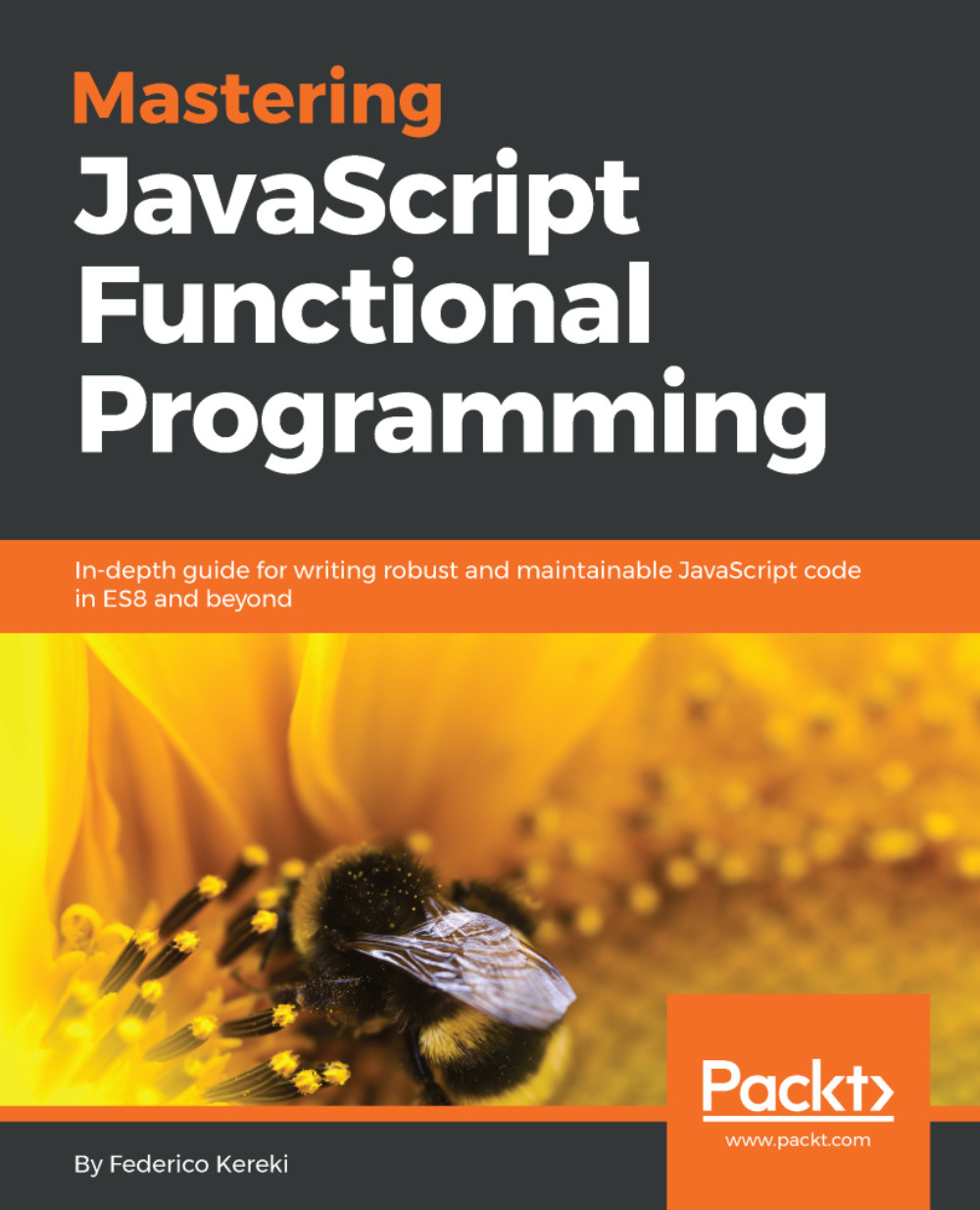-
Book Overview & Buying

-
Table Of Contents

Mastering JavaScript Functional Programming
By :

Mastering JavaScript Functional Programming
By:
Overview of this book
Functional programming is a programming paradigm for developing software using functions. Learning to use functional programming is a good way to write more concise code, with greater concurrency and performance. The JavaScript language is particularly suited to functional programming.
This book provides comprehensive coverage of the major topics in functional programming with JavaScript to produce shorter, clearer, and testable programs.
You’ll delve into functional programming; including writing and testing pure functions, reducing side-effects, and other features to make your applications functional in nature.
Specifically, we’ll explore techniques to simplify coding, apply recursion for loopless coding, learn ways to achieve immutability, implement design patterns, and work with data types.
By the end of this book, you’ll have developed the JavaScript skills you need to program functional applications with confidence.
Table of Contents (22 chapters)
Dedication
Title Page
Credits
About the Author
About the Reviewer
www.PacktPub.com
Customer Feedback
Preface
 Free Chapter
Free Chapter
Becoming Functional – Several Questions
Thinking Functionally - A First Example
Starting Out with Functions - A Core Concept
Behaving Properly - Pure Functions
Programming Declaratively - A Better Style
Producing Functions - Higher-Order Functions
Transforming Functions - Currying and Partial Application
Connecting Functions - Pipelining and Composition
Designing Functions - Recursion
Ensuring Purity - Immutability
Implementing Design Patterns - The Functional Way
Building Better Containers - Functional Data Types
Bibliography
Answers to Questions
